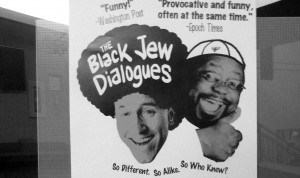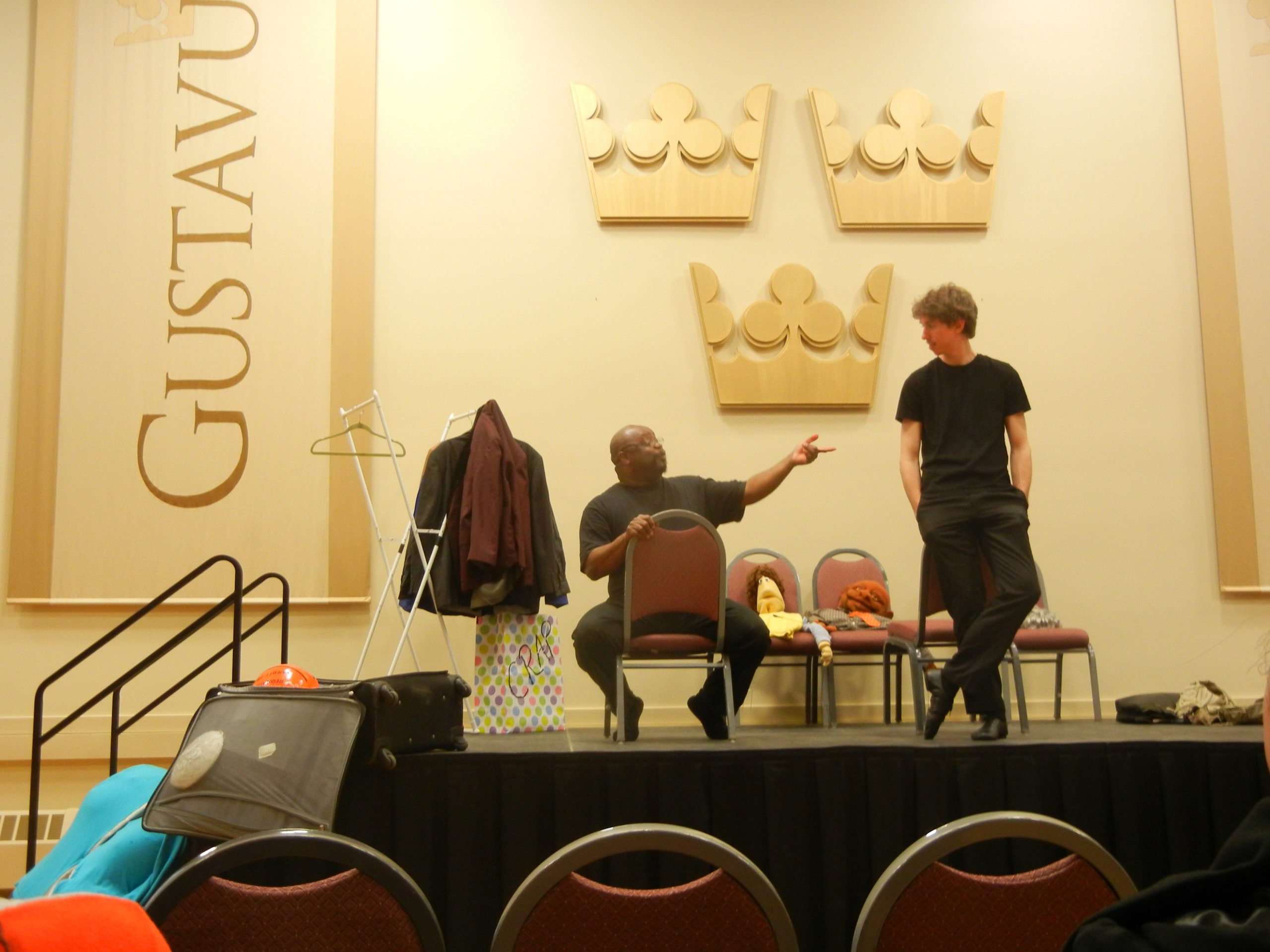Gustavus students were granted an opportunity to confront social issues through the two-man comedic performance of “The Black-Jew Dialogues” on Wednesday, Feb. 19 through skits, video, and audience interaction.
Sponsored by the Campus Activities Board, the show seemed a perfect fit for the Gustavus campus according to Senior Arts and Entertainment Executive Caitlin Dow.
They encountered the performance troupe last spring at a Campus Activities Board conference.
“What we typically look for, as a whole, on the Campus Activities Board are things that will be engaging to the students, that students can walk away from thinking about certain topics,” Dow said.
Exploring the specific cultural obstacles experienced by the African American and Jewish communities, both historically and currently, performers Ron Jones and Simon Pringle-Wallace presented their message through skits, video, and audience participation. The atmosphere of the event aimed toward a humorous and relaxed examination of broader social issues. At one point in the show, the male performers transformed themselves into stereotypical African American and Jewish grandmothers in a discussion of the cultures’ common bond over food, and a “game show” prompted audience members to test their “Judar,” while guessing whether certain celebrities were Jewish.
However, against this lighthearted background the performers also raised difficult cultural topics. The legacy of slavery, the Holocaust, and current racial prejudice entered the performance, as well as the introduction of the concept of “feareotypes” which the actors categorized as dehumanization based in mistrust of other cultures.
“The Black-Jew Dialogues” were originally written by Emmy-Award winner Ron Jones and partner Larry Jay Tish. The show’s website cites the writers’ aim as “to use it as a catalyst to reunite not only their people, but all of us.”
Performer Simon Pringle-Wallace reflected that the show was composed in response to negative national narratives which formed shortly after the events of 9/11, particularly against the American Muslim population. The show gained popularity and expanded from fringe festivals to tours across the nation. In addition to theatres and synagogues, college campuses are a prominent audience for the performance.

“We’ll go anywhere, but it’s mostly college audiences. Colleges really seem to resonate with what we’re saying, mostly because college is, in many cases, people’s first opportunity to really expose themselves to a broad range of diversity, not just people of different races or different religions, but people of different races, religions, and nationalities, all in one location, and so that makes for a really fruitful place to work like this, and usually a really receptive audience,” Pringle-Wallace said.
Following the performance, Pringle-Wallace and Jones opened the floor to discussion, raising questions about contemporary issues facing the Gustavus campus specifically.
“Tonight was a really vocal talkback, sometimes it takes a lot more effort to draw people out,” Pringle-Wallace said.
Prominent among the issues raised was the perceived lack of respect given to atheist groups on campus and the stigma that arises from being anything other a “lukewarm Lutheran,” as one student offered.
“I think that is sort of what we’re doing, and not to toot our own horn at all, it’s important or it continues to be important because the world isn’t getting any more insular, it is only getting broader and broader and more interconnected,” Pringle-Wallace said.
He also spoke of the importance of granting some leeway in difficult cultural conversations, in order to foster the most productive interactions.
Following the show, Junior Nicole Petersen said, “I thought it was really interesting. I thought they brought up some really valid points about a lot of the issues today. I liked that they didn’t just keep it strictly to race, but they also take gender and crossed those kinds of borders.”
“I think they did a good job of finding the humor in the situation but also recognizing that it’s also something that does need to be taken seriously but it can also be joked about. We just need to get rid of the negative attitudes towards it basically,” Petersen said.
At the conclusion of the performance, in open discussion Jones said “I don’t know anybody in the world who just wants to be tolerated.”
He reminded the audience of the importance of recognizing that everyone is included in diversity, from smaller groups to the cultural majority.
